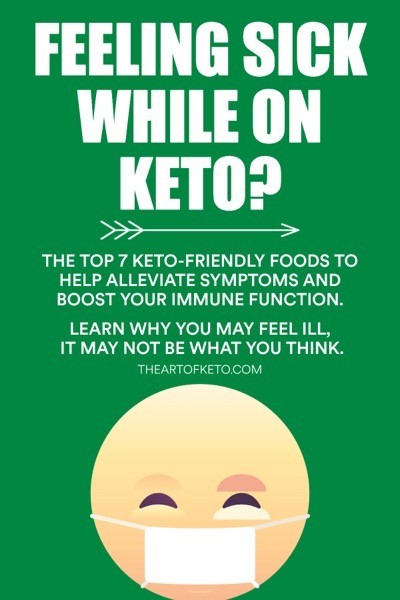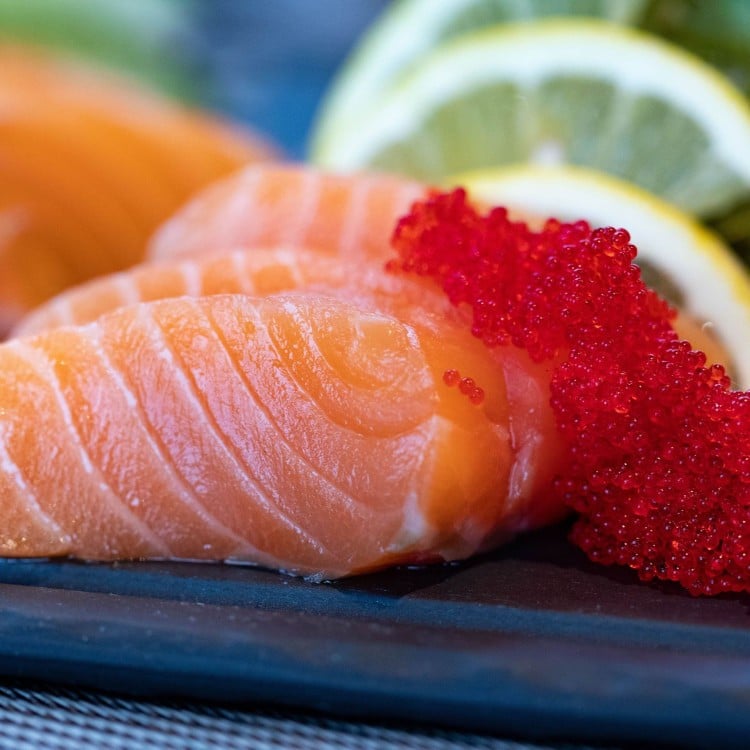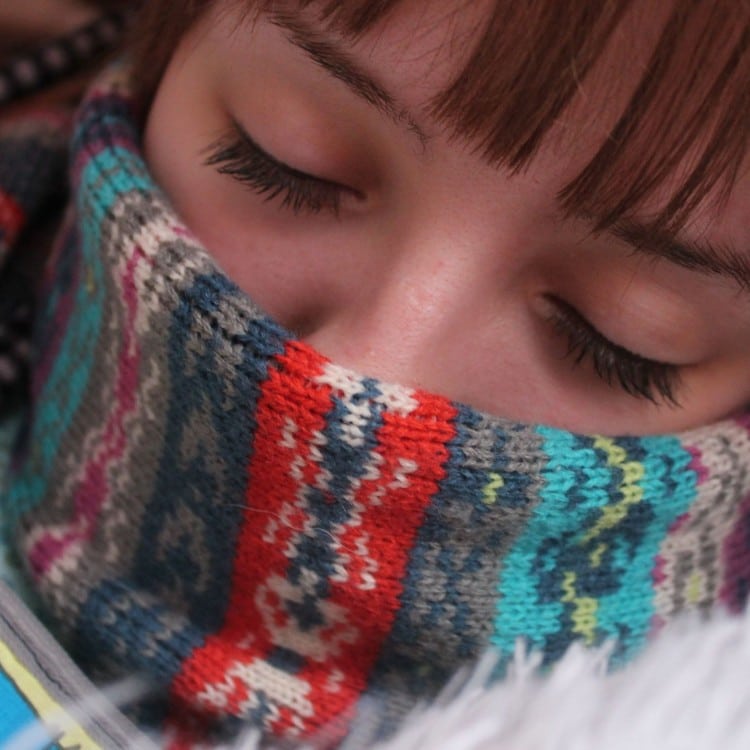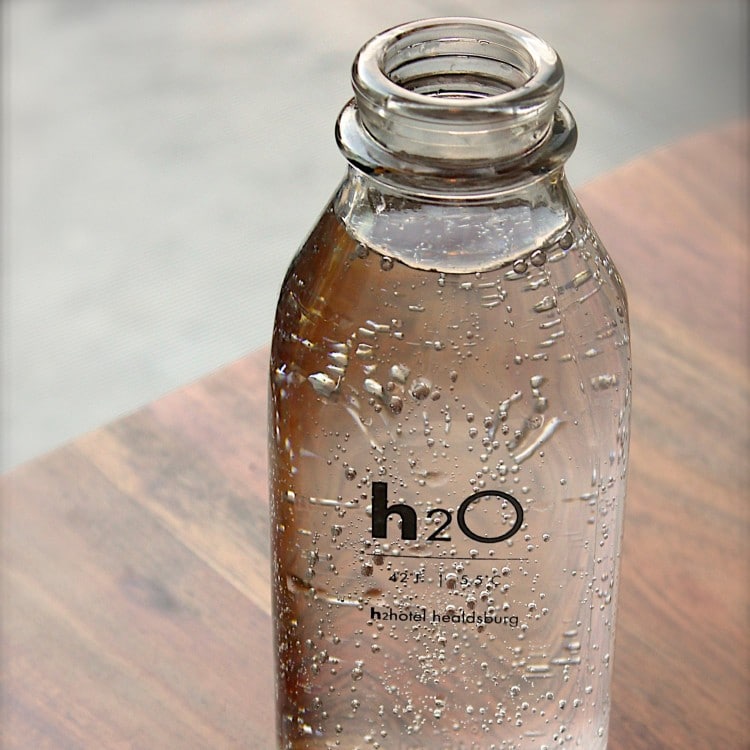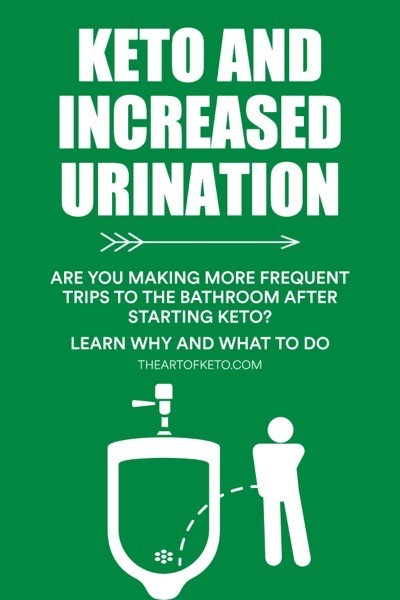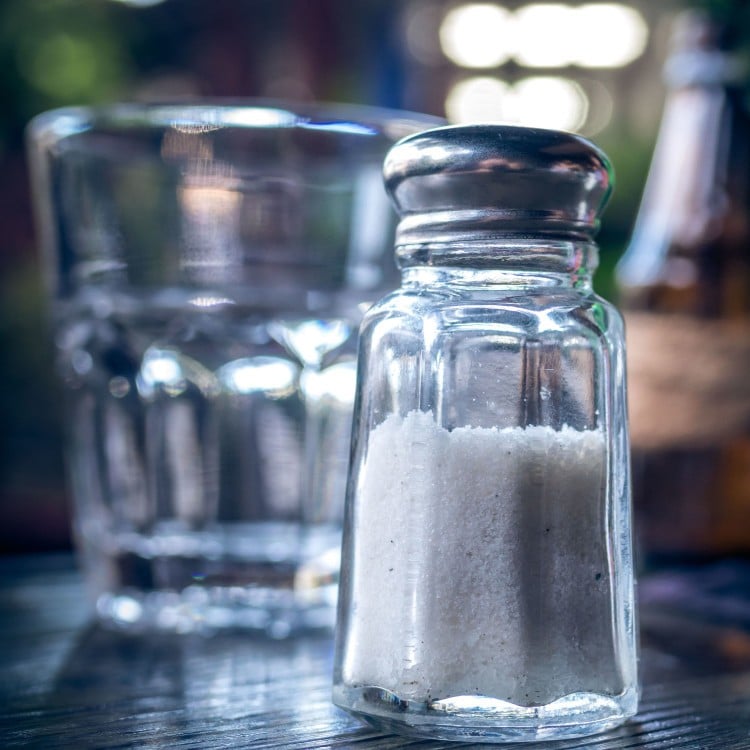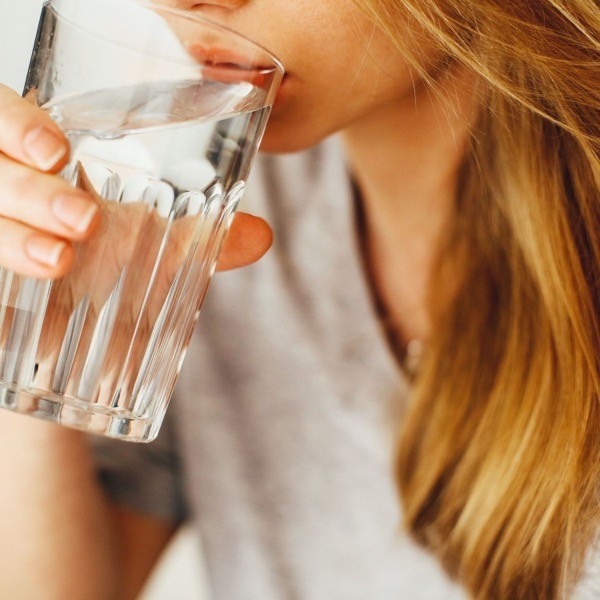I remember the very first time I started a ketogenic diet over 15+ years ago. I felt MISERABLE, and that's putting it lightly.
But I guess I'm a masochist, because I kept going, and here I am.
One of the most prominent symptoms I remember was having the worst sore throat because when I usually get one, that means I'm about to get sick for a while. Now, I understand why all of that happened, and here's the main culprit.
Can keto cause a sore throat? Sore throat on keto is a real thing, and it's a result of the diuretic nature keto has on your body. Both dehydration and a deficiency in electrolytes, especially sodium and potassium, are the main reasons you may be experiencing a sore throat when starting a ketogenic diet.
In this article, I'll go over how keto may be causing your sore throat, other symptoms you may be experiencing, how to relieve your symptoms, and how to avoid it in the future.

Get Keto Cheat Sheet Magnets: Check it out now here
Can Keto Cause Sore Throat
When people start a ketogenic diet, they are often faced with a multitude of different changes to their body they've never experienced before.
After all, there's a good chance the foods you're eating are COMPLETELY different than what you may have been used to.
One of the significant reasons, and usually the main one, why you have a sore throat when starting keto is that you're DEHYDRATED!You may not think you are, but let me explain why it's very likely that you are.
Why You're Dehydrated
You may have noticed that in the first week of starting a ketogenic diet, maybe around the third day on, more frequent trips to the bathroom.
That's because when you start a ketogenic diet, your body starts to expel a large amount of water.
On average, your body stores ~500 grams of carbohydrates in the form of glycogen. When you restrict carbohydrates from the diet, the body begins to use this stored energy.
But what's that have to do with dehydration, you ask?
For every gram of carbohydrate that's in your body, you store an additional three grams of water along with it. That means you'll likely be shedding 1,500 grams or 1.5 kg (3.3 lbs) of water in just the first couple of weeks on keto.
And with that water that you're expelling, you're getting rid of vital minerals (electrolytes), but more specifically sodium int potassium.
Sodium and potassium are electrolytes needed to help maintain fluid and blood volume 1, so you can see how that might make matters worse when you're flushing them out of your body at a rapid pace.
Assuming you don't have a bacterial or viral infection, there's a good chance you're suffering from dehydration and other symptoms of the “keto flu.”Keto Flu Symptoms
Sore throat is just one of the symptoms you may be experiencing on keto. Throat tightness may be another related symptom to your sore throat that is related as well.
Other symptoms of the keto flu include:
- Headache
- Lethargy
- Irritability
- Brain fog
- Nausea
If you're experiencing one or more symptoms, you're suffering from what many refer to as keto flu. Don't worry, you're not alone in this, it happens to many people who transition to a ketogenic diet.
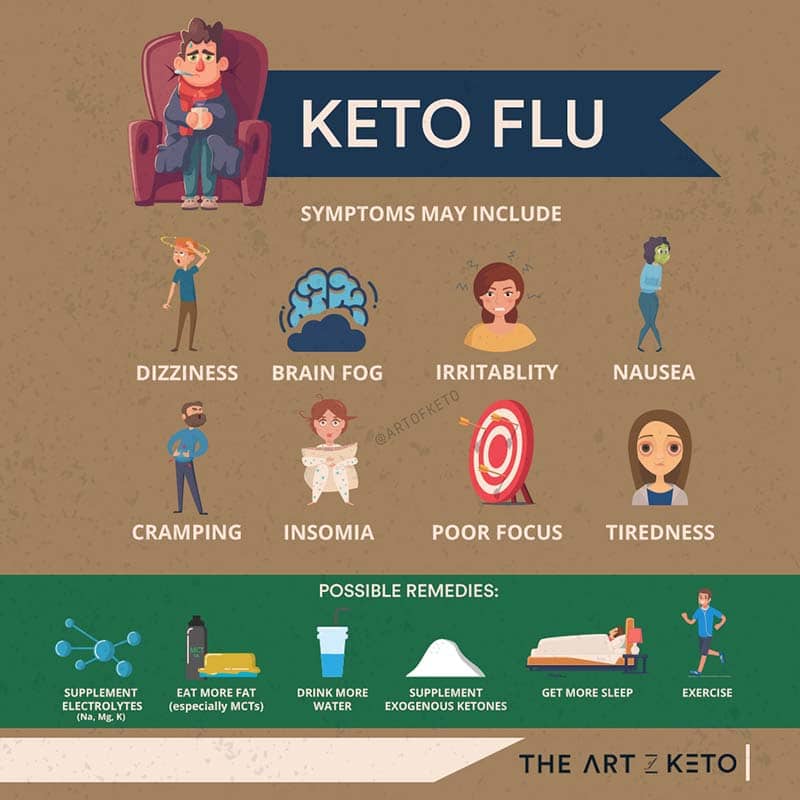
Is Keto Flu A Sign Of Ketosis?
While people who start a ketogenic diet experiencing symptoms of keto flu, it doesn't necessarily mean you are in ketosis.
The only way to accurately assess if you are in ketosis is by testing your ketone levels.
There are three primary methods in which you can test for ketones:
- Urine test strips
- Blood ketone meter
- Keto breathalyzer
Urine test strips are the easiest and cheapest (initially). They are what most people tend to use because you can find them at your local drug stores like CVS or Walgreens.
However, after a while, urine test strips tend to be less accurate once you become better adapted to using ketones for fuel.
The most accurate, and what I would recommend, is a blood ketone meter. A blood ketone meter is essentially like a blood glucose meter a person with diabetes would use to check their glucose levels.You puncture your finger to produce a drop of blood and place it on a test strip. Then, the ketone test strip is inserted into your blood ketone meter to get a reading.
It's commonly held that anything above > 0.5 mmol/L means you are in nutritional ketosis.
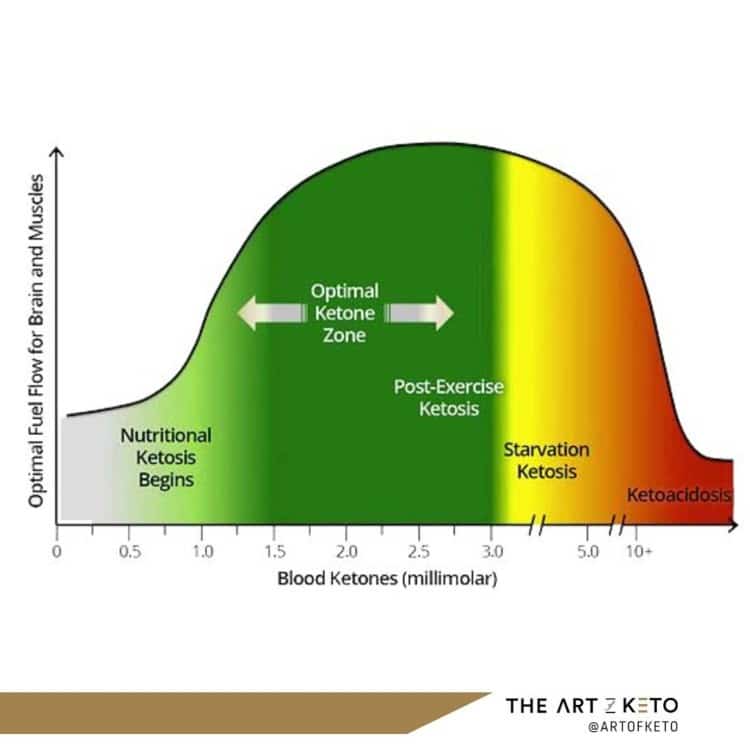
Here is the blood ketone meter I recommend if you're interested in testing.
How Long Does Keto Flu Last?
For most people, but not you, because I'm going to tell you how to get rid of it sooner later in this article, keto flu lasts between one and three weeks.
Once people's bodies begin to adapt and normalize to the low carbohydrates, things in the body tend to re-establish a baseline.
But I don't want you just to feel normal; I want you to feel optimal.
Now that you know what the keto flu is let's go over how you can relieve your symptoms and how you can prevent it in the future.
Keto Sore Throat Relief
Since you want immediate relief, let's start there. After that, we'll tackle the real issue at play here.
Keto Friendly Cough Drops
Yes, use some keto friendly cough drops to help with that sore throat for now. Here are some sugar-free ones that shouldn't kick you out of ketosis.
Now, let's tackle the real issue here, your dehydration and lack of electrolytes.
Drink Some Ginger
Another remedy you may want to consider is drinking some ginger tea or steep ginger in hot water.
- Read: Is Ginger Keto Friendly?
How To Avoid Keto Flu
It may be too late, especially if you came here looking to resolve an issue associated with keto flu, but keep this in mind for the future or if you're helping someone else transitioning to a ketogenic diet.
Replace Your Electrolytes
The primary electrolytes we want to replenish to help with fluid retention are sodium and potassium, that's because sodium and potassium help regulate fluid balance in your body.
Sodium
When following a ketogenic diet, many people often switch to different foods, usually with less sodium than what they were eating previously.
Due to the change in diet and lack of carbohydrates, you need to be mindful of your salt and potassium intake.
One way to do this is by salting your food liberally and to taste. Those following a low-carb or ketogenic diet have an increased need for sodium.
You may even find something like Lite Salt at the grocery store, which is a mix of both sodium and potassium to salt your foods.
I like to use the following salts that carry a bit more minerals, and they taste much better.
Potassium
To balance sodium levels, you need to make sure you're getting in potassium as well. Keto-friendly sources of potassium include foods like avocados and leafy greens.
It may also help to include an electrolyte replacement or drink with a sufficient amount of sodium and potassium, although most commercial electrolyte drinks are often very low in potassium.
Here are some electrolyte drinks I would recommend with a sufficient amount of potassium and formulated with a keto dieter in mind.
Drink Water!
Yes, it has to be said, but get PLENTY of fluids.
I listed this after electrolytes because if you're drinking too much water without adding in sodium and potassium, then you may be dehydration yourself even more.
You want your pee not crystal clear, nor super yellow. You want your urine to be a very, very light yellow-ish color.
Use this chart as a good reference or read how much water you should drink on keto.
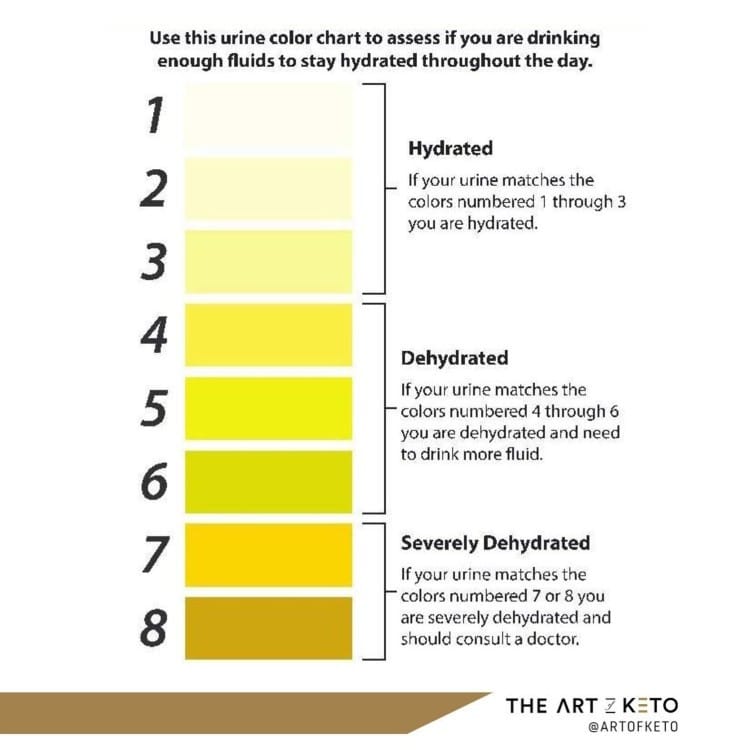
Exogenous Ketones
I very rarely recommend exogenous ketones, but an excellent use for them is as a “bridge” between a carbohydrate diet and transitioning to a ketogenic diet.
Exogenous ketones can also help if you have an unplanned (or planned) cheat day, and keep you from feeling crummy the next day.
Bear in mind; not all exogenous ketone supplements are created equal. Some keto supplements are scams that don't have enough of any ingredient to make them useful whatsoever.Take, for example, this shark tank keto diet pill scam.
Chances are you won't be able to get a sufficient amount in a pill, so powder is best.
Here are a couple of exogenous ketone salts I would recommend with a sufficient amount, based on the current scientific literature:2
The Take-Away
A sore throat on a ketogenic diet is often due to dehydration and lack of electrolytes, especially sodium and potassium.
It may be just one of the other symptoms you may be experiencing, as it's one of the common symptoms of what's known as the “keto flu.”
For immediate symptom relief, try using a sugar-free cough drop, and then address the underlying cause by making sure you get in an adequate amount of electrolytes and by drinking enough fluids.
Frequently Asked Questions
Does body temperature rise in ketosis?
When you're in ketosis, it's possible that your body temperature will rise initially. However, once you've been on the diet for a longer time, you won't experience a rise in temperature.
Why am I sweating so much on keto?
When you're in ketosis, the body will burn fat at a higher rate. One of the by products of your body breaking down fats is the release of water. That water than has to exit the body, which it does via sweating!
Why do I feel feverish on keto?
It's normal to feel slightly feverish when you just start out the keto diet. The body is reacting to a lack of carbohydrates so feeling fatigued and feverish is expected.


